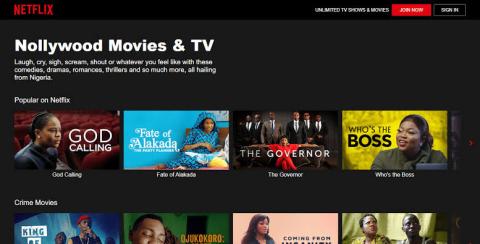The Nigerian film industry, Nollywood, has captivated global audiences with its storylines, talented actors, and unique productions. From the early days of “Living in Bondage” to the recent action-packaged movies like “Brotherhood”, “Jagun Jagun”.
One can see that Nollywood has transitioned through various forms of distribution, from the VHS to VCDs and then cinemas, each channel coming with its own challenges.
Now, the industry is in a stage where it has an opportunity to distribute its movies via international streaming platforms like Netflix, Prime Video, and Showmax.
But a crucial question lingers for filmmakers: how much does Netflix pay for Nigerian movies?
This blog post delves into the murky world of Netflix licensing deals for Nollywood content. We’ll look at the reported figures, the factors influencing payouts, and the ongoing debate surrounding fair compensation for Nigerian filmmakers.
How Much Does Netflix Pay for Nigerian Movies?
According to a report on Techcabal website and other sources, Netflix pays Nigerian filmmakers between $10,000 and $90,000 for streaming rights per film, on average, although the amount occasionally goes up, depending on the director, film budget, and projected numbers.
For originals, Netflix pays as high as ₦1.4 billion ($3.8 million), like in the case of Genevieve Nnaji’s 2018 film, Lionheart. In contrast, the highest-grossing movies in cinemas, like Omo Ghetto, made up to ₦636 million ($848,000).
Before making conclusions on the above report, let’s look some certain factors that affects the amount a Nigeria filmmaker receives from Netflix:
- Film budget: High-budget productions with established actors and directors naturally command higher fees.
- Genre and popularity: Films belonging to popular genres with a proven track record of audience engagement might fetch more.
- Expected views: Netflix uses data and algorithms to estimate a film’s viewership potential. Higher projected views often translate to a larger payout.
- Negotiation power: Reputable production houses with a strong back catalog and established relationships with Netflix might secure better deals.
It’s also worth noting that Netflix employs various acquisition models:
- Streaming rights: Netflix acquires the rights to stream the film for a specific period on its platform.
- Co-productions: Netflix partners with Nigerian production companies to finance and develop content, sharing ownership and profits.
- Originals: Netflix commissions and fully finances the creation of films specifically for its platform.
The chosen model significantly impacts the payout structure. Streaming rights deals typically offer a one-time payment, while co-productions and originals involve profit-sharing agreements.
The Disparity Between Nollywood and Other Film Industries
Thousands of films are produced yearly in Nigeria, but only very few of them make it to the big streaming platforms.
This leaves a large number of other-often smaller-filmmakers without many viable options for distributing their films. While cinemas are an option, foreign movies get more attention in them, taking over 75% of the market share.
In an interview, Xavier Ighorodje, a writer and producer in Nollywood, shares that, while cinema releases generate more money, compared to the VHS and VCD distribution model, the direct-to-streaming route has put even more money in the pockets of filmmakers.
Read Also: How Much Does it Cost to Produce a Nollywood Movie?
However, several Nollywood filmmakers have expressed concern about the significant disparity between the fees offered for Nigerian films compared to those from other regions.
Reports suggest that Netflix pays substantially higher sums for Asian and European movies, sometimes in the millions. This perceived discrepancy raises questions of fairness and equal treatment.
Here’s a closer look at the arguments behind the discontent:
- Production value vs investment: While Nollywood budgets might be lower than Hollywood productions, the industry boasts a prolific output and a passionate audience. Filmmakers argue that the effort and quality justify a higher payout.
- Global appeal: Nollywood films transcend geographical boundaries, attracting viewers worldwide. The platform’s global reach shouldn’t diminish the value of Nigerian content.
- Long-term impact: Netflix’s dominance in the streaming market grants it significant exposure. While a one-time licensing fee might seem substantial, the long-term impact on a film’s viewership and potential for future projects should be considered.
Benefits of a Netflix Partnership
Despite the financial concerns raised, a Netflix partnership offers several advantages for Nollywood filmmakers:
- Global exposure: Netflix delivers Nigerian content to a vast international audience, boosting visibility and potentially leading to new fans and collaborations.
- Financial security: A licensing deal with Netflix provides a guaranteed income stream, aiding financial planning and project development.
- Elevated production standards: The prospect of Netflix distribution might incentivize filmmakers to invest in higher production values, enhancing the overall quality of Nollywood films.
Netflix’s involvement has undoubtedly played a role in projecting Nollywood further into the global spotlight.
The platform’s investment in original Nollywood productions like “King of Boys: The Return of the King” demonstrates a commitment to fostering local talent and creating high-quality content.
Conclusion
Having a thriving film ecosystem will not only benefit Netflix but Nollywood and film-loving audiences. So striking a balance between commercial interests and fair compensation will ensure that our stories continue to resonate with global audiences.
Notwithstanding, the conversation around the amount Netflix pays for Nigerian movies will always be there. However, as the industry evolves, we’ll expect more dialogue and negotiation to create a sustainable model that fosters the continued growth and success of our film industry.
References:
- Sahara Reporters
- Techcabal






































Discussion about this post